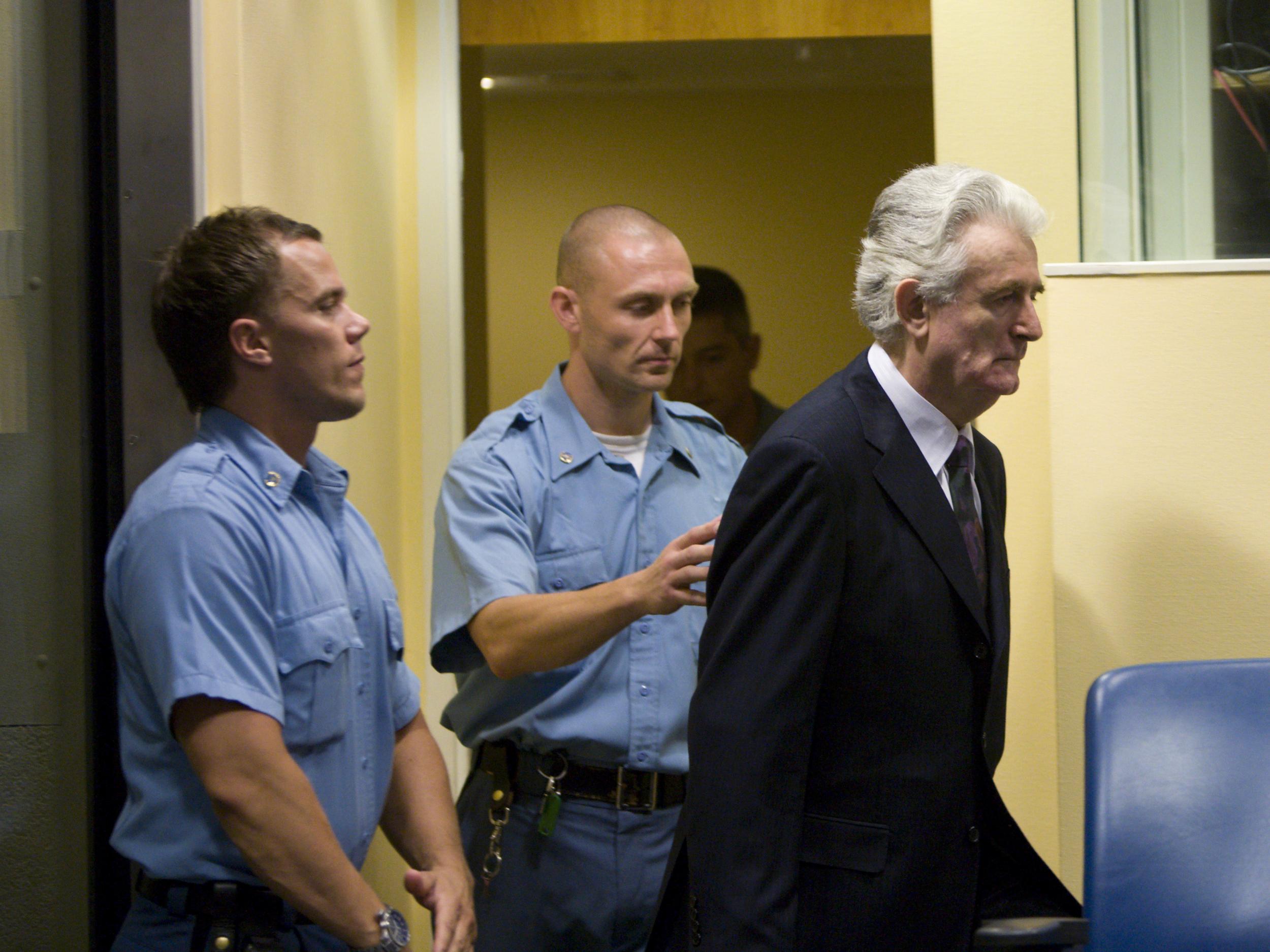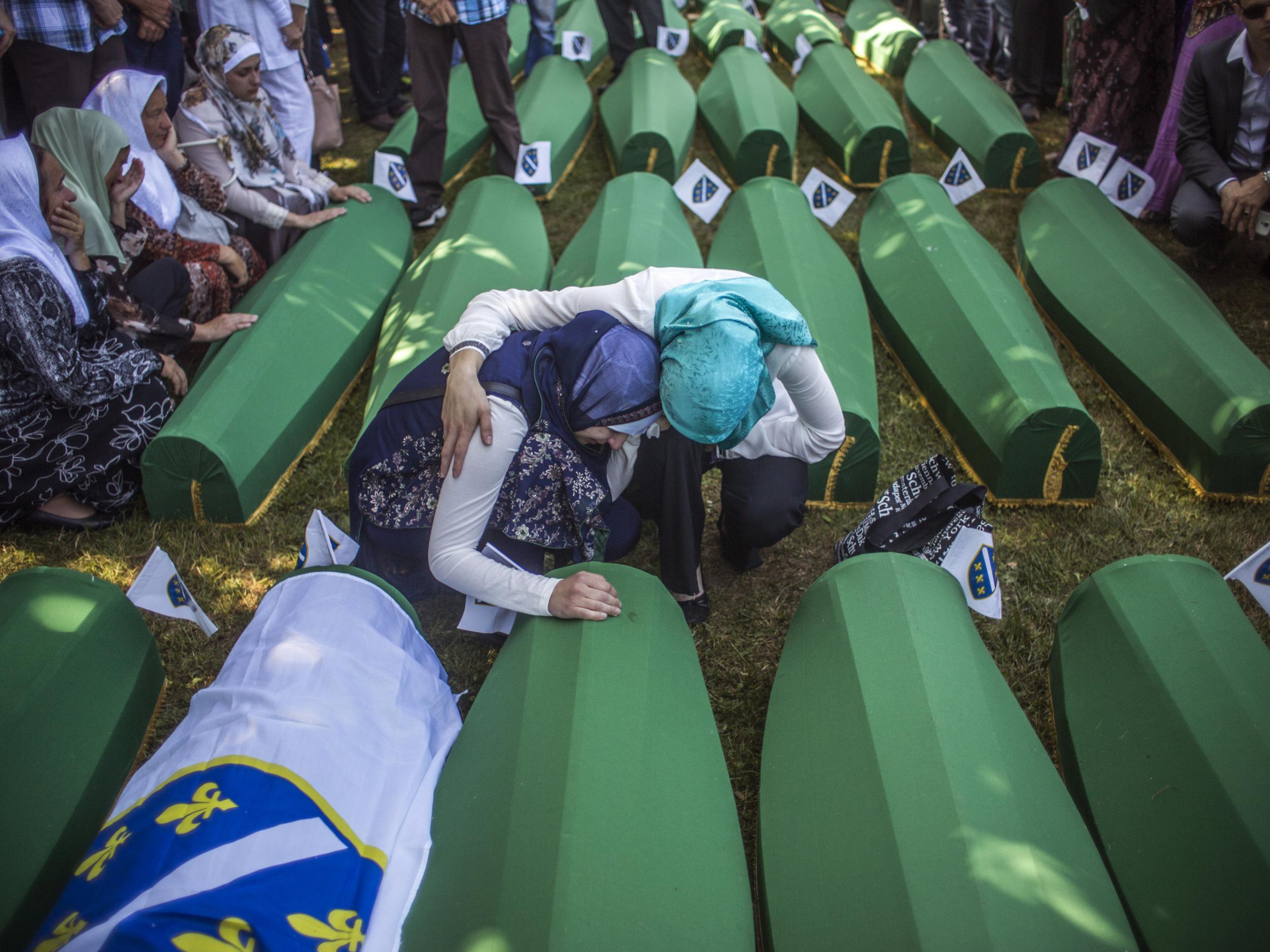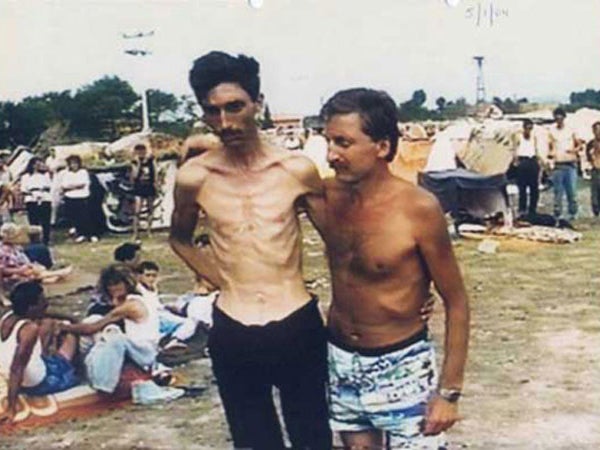Who is Radovan Karadžić and what happened in Screbrenica?
Former president of the Serbian Republic of Bosnia and Herzegovina faces verdict at UN war crimes tribunal

Your support helps us to tell the story
From reproductive rights to climate change to Big Tech, The Independent is on the ground when the story is developing. Whether it's investigating the financials of Elon Musk's pro-Trump PAC or producing our latest documentary, 'The A Word', which shines a light on the American women fighting for reproductive rights, we know how important it is to parse out the facts from the messaging.
At such a critical moment in US history, we need reporters on the ground. Your donation allows us to keep sending journalists to speak to both sides of the story.
The Independent is trusted by Americans across the entire political spectrum. And unlike many other quality news outlets, we choose not to lock Americans out of our reporting and analysis with paywalls. We believe quality journalism should be available to everyone, paid for by those who can afford it.
Your support makes all the difference.A UN war crimes tribunal is set to announce its verdict in the case of former wartime Bosnian Serb leader Radovan Karadžić.
Karadžić became president of the Serbian Republic of Bosnia and Herzegovina (Republika Srpska) in 1992, one month after the state of Bosnia and Herzegovina declared independence from the former Yugoslavia following a referendum that was boycotted by most Bosnian Serbs.
Disagreement from the Bosnian Serbs led to a genocide, in which an estimated 100,000 Bosnian Muslims and Bosnian Croats were killed with others subject to terror tactics including rape as an instrument of terror.
Karadžić was arrested in 2008, after going into hiding for more than a decade, for his involvement in several joint criminal enterprises, including participating in an attempt to “eliminate” Bosnian Muslims in the town of Srebrenica by killing more than 8,000 people, and forcibly removing others.
He is also allegedly complicit in the detention of thousands of Bosnian Muslims and Bosnian Croats in detention facilities, including the Omarska and Trnopolje camps, “under conditions of life calculated to bring about their physical destruction”.
The former president is also held responsible for the 44-day siege of the Bosnian capital of Sarajevo which resulted in the killing of at more than 10,000 people including 1,500 children.
Karadžić faces 11 charges, including two counts of genocide, five counts of crimes against humanity and four counts of violations of the laws or customs of war.

The Srebrenica massacre, the genocidal killing of over 8,000 Bosnian Muslims by the Bosnian Serb Army of Republika Srpska, occurred in July 1995 during the Bosnian War.
Thousands of Bosnian Muslims were systematically murdered in the town of Srebrenica in an ethnic cleansing operation by the Serb forces. Others were forced out of the territory, with over 20,000 being forcibly removed using terror tactics, including the rape of women and girls by Bosnian Serb soldiers.
Tens of thousands of Bosnian Muslims and Bosnian Croats were held in detention centres during the war, including death camps, predominantly inhabited by men and rape camps where women were subject to sexual enslavement.

Thousands of camp inmates were killed, while others were starved, beaten and tortured.
Prosecutors hold Karadžić responsible for the actions of the Bosnian Serb Army as the political leader and commander in chief of the Serb forces.
The former leader will appear before the International Criminal Tribunal for the Former Yugoslavia (ICTY) which has already sentenced 80 people for war crimes during the Balkan conflict.
Join our commenting forum
Join thought-provoking conversations, follow other Independent readers and see their replies
Comments